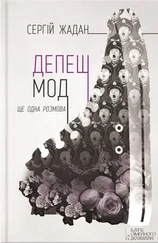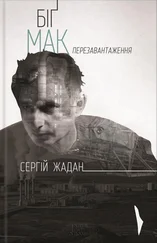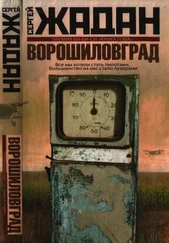I didn’t. Later on, he told everyone himself.
I asked him what was keeping him here. He had lots of relatives on his dad’s side, and they were always offering him jobs back home, in the Caucasus.
“Well, how can I just up and leave? How can I quit on them?” He was referring to all his women, all his relatives, and all his friends and rivals. “There’s just no way.” But I knew that wasn’t the real reason. I knew Alina was the one keeping him here—she flatly refused to leave with him. She said she’d die here—with his parents and in his house, an inconsolable widow—before she’d leave this city. Marat could act on any ridiculous fancy that popped into his head. He lived with whoever he wanted, he slept with whoever he wanted, he fought with whoever he wanted, he lost friends and made enemies, refused to make the right connections, and failed to uphold his obligations to anyone—by the end of his life he was at odds with everyone, even me. I hadn’t spoken to him all winter. He owed Kostyk a lot of money. As far as I could gather, he wasn’t planning on giving it back—plus Kostyk wouldn’t have accepted it anyway. It seemed as though he was preparing for something important, some big decision, or some great event. He could cut himself loose of everything and still get by. Everything but Alina. I knew that for a fact. It made no difference how many women he had or how deep his pink hairdresser chewed into his skin, I knew that he would never leave without Alina. And I knew why. Nobody besides me knew. A long time ago, Marat told me all about them, for some reason—how they met on the street somewhere or other, how he stopped her, how he didn’t want to let her go because he already knew that this was the girl he wanted to live with. How she kept avoiding him, always hiding something. How he first went home with her and how all that turned out. How she finally agreed to move in with him—but before she did, she told him all about her mom, because she didn’t want to keep anything from him. She said that her mom had to spend time in the hospital every once in a while—“Yeah, it’s a drag. It’s nothing too bad, but there’s nothing too great about it, either. Sometimes she just doesn’t recognize anyone. But that’s nothing too serious, don’t ya think? I don’t always recognize everyone, either.” So she always had to be somewhere nearby, somewhere not too far away, because of her mom and stuff. Marat had no problem with that, and he knew better than most guys do that his girl wouldn’t be going anywhere… but that meant he wasn’t going anywhere either. Because it’s one thing to sleep in another apartment with another woman, but you just can’t quit on someone who can’t be left behind. That’s just not an option. Not under any circumstances. At least that’s how I understood their relationship.
“What’s going to happen to her?” I thought to myself. “How’s she going to get by? What’s she going to do from here on out?” I passed the Institute, crested the hill, and stopped by our school. My old, four-story apartment building was directly across from it. It was so badly maintained that the front door wouldn’t even close. Sometimes I’d wake to the sound of young voices coming from the stairwell—kids ducking in for a smoke break. I lived on the top floor; the only thing above me was the roof. Hundreds of pigeons lived up there—sometimes their cooing would seep into my dreams. One time, when we were already in high school, Marat dragged me up there to go “hunting.” I don’t know why he felt the need to do that. I don’t remember why I agreed to go along with him.
“There are hundreds of pigeons up there,” he said excitedly. “They’re sleepy at night; you can just stuff ’em in a sack.” We met outside my building in the evening. He had a gym bag with him. We went up the stairs. Marat stepped out first. I followed him. It was stuffy and quiet up in the attic. Only the eerie, invisible rustling of wings broke the silence. I took out my flashlight, but Marat stopped me just in time.
“Put that away, you’ll scare ’em off,” he said. He stepped forward. The pigeons were perched on the beams, sleepy and defenseless. He grabbed them and tossed them into his bag. They submitted with a chilling, doomed air, unable to process what was happening to them, unable to look death straight in the eye. Soon enough, the bag was full. It was rustling, as though two people were arguing inside. Marat walked over toward a window and stepped out, onto the ledge. He called me over and I followed him. We carefully positioned ourselves by the window, taking in the buildings down below. The city blocks where we were born and raised shone into view, dark and silvery—heavy conglomerations of structures and sprawling treetops. Apartment blocks with darkness pooling in the hollows between them, like water in the holds of sunken tankers, shone into view. Windows and balconies, antennas and ladders shone into view. Arches and doorways, telephone poles and kiosks shone into view. Bricks and tin, grass and stones, clay and nighttime earth shone into view. Spiderwebs, filling the air like thin veins, shone into view. Down toward where the river ran, the buildings dropped off and the roofs of warehouses and auto repair shops shone into view, and the cold mercury of its current shone into view, and on the opposite bank were the spectral pipe of the old windmill, the lights of houses, and the white smokestacks of furnaces and factories. Thick silver flooded the earth and the sky, and you could only guess who lived down there and what was happening. Marat looked straight ahead, entranced.
“You know what?” he said. “It’d be sweet to buy up all of this someday.”
“What for?”
“What do you mean ‘what for?’ It’d boost my status. Can you imagine having your own house like that, all to yourself?” he said, pointing at the windows across the way. “When I grow up, I’m definitely gonna buy all of this. I’m gonna buy everything and everyone. Everything around here is gonna be mine.” He thought for a second, then added, “Well, I guess it already is.”
“Exactly,” I agreed.
“Hey, you don’t think I can do it, do you?” Marat was offended. “You’ll see. I can do anything I want. How can you not believe me? You’re my friend—and my student.”
“Huh?”
“I taught ya how to box!”
“I don’t know about that. You just knocked me around in the ring a couple times.”
“It doesn’t matter. I could even say you’re my favorite student.”
“Hey, why don’t we let them out?” I asked, pointing at the bag. “Come on, man, this isn’t cool.”
Marat kept quiet—apparently vacillating—then he opened the bag and shook the birds out onto the slate roof. They rolled a bit, flapped their wings, and flew away into the nighttime air. Marat tossed the bag to the side. He sat there in silence. I didn’t really know what to say then, either. Suddenly he turned around. The thin, reflected sickle of the moon glinted sharply in the cracked window behind us. There was so much light coming off it. It blinded and disquieted us. Marat extended his hand cautiously and broke off a piece of glass, as if he was snapping the moon in two. One half remained. It got darker.
Two years ago, I could feel my heart waking me up every morning, “Come on, we don’t have much time, we’re gonna miss all the good stuff!” It would hop up and down impatiently, urging me to get moving. “Come on, how much can a guy sleep?” I’d get up and run outside, and then not a single one of the city’s wonders could escape me. Two years ago, my lungs devoured the air ferociously, and I was sure that something extraordinary—white light, fireworks, and grand orchestras—was waiting for me just around the next corner, something like a holiday. Actually, there was nothing waiting for me except cold spring drafts, but that didn’t get me down one bit. Twenty—that’s the age when the devil pays you a visit to gripe about his troubles. All you have to do is sleep as little as possible. Well, that and use condoms. Then you’re golden. Everything will fall right into place. Everything will happen just the way you want it to. Whether you want it to or not.
Читать дальше










